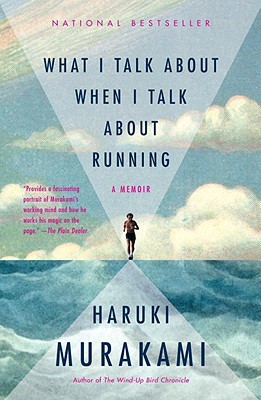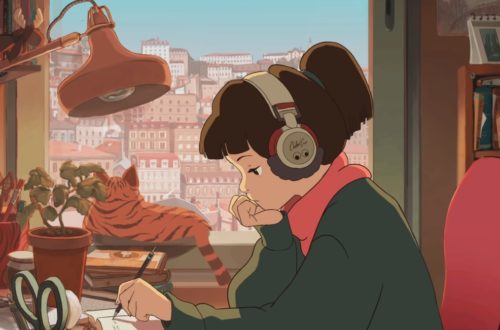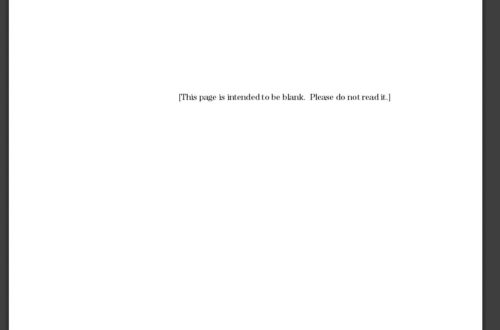I’m in Montreal this morning, having traveled here for work. It’s snowy and dark. I’m up early thanks to the time difference. On the plane over I read Japanese novelist Haruki Murakami’s memoir “What I Talk About When I Talk About Running”. Like pretty much everything else Murakami writes, it’s great. In Murakami’s writing I love the pervasive sense of calm in the midst of the every day world. His novels, and his memoir are filled with images and anecdotes from a kind of placid daily existence that I find deeply soothing to read about. His descriptions of running, cooking and listening to music are a place I’m always happy to visit. Interestingly enough, the experience of reading this book, which is a kind of a hybrid of thoughts about running and thoughts about writing generates many of the same feelings. It’s full of beautiful, mundane moments rendered in Murakami’s unique, understated and direct style.
It’s a short book and so if you’re a fan of either running, writing about writing or Murakami himself, you’ll find a lot to enjoy. There are also a number of fairly deep and useful jewels of knowledge embedded within. One, which I think is one of the more valuable things I’ve learned in life and continue to relearn, is about suffering. To paraphrase Murakami early in the book, talking about running, pain is unavoidable but suffering is optional. This concept that we are an active participant in our experience of circumstances, particularly difficult ones, is one which I come back to, rediscover, relearn and re-experience throughout my life. Life is filled with all kinds of feedback and stimuli, many of which are uncomfortable, challenging or painful. We as humans have the tendency to narrativize our experiences (a kind of internal writing of our own stories) and within that process, we seek meaning and order in things which sometimes don’t have them. This leads to suffering. When we experience loss we ask unanswerable questions like “Why me? What did I do to deserve this?” and suffer under a feeling of injustice, that something wrong has happened.
A childhood friend of mine’s father died, not too long after my own father passed away and we were sitting shiva for him at their family apartment in New York. My friend asked me if I had any advice to share having been through the same process a few months earlier. I told him I didn’t, but what I could offer was the idea that although the loss of his father was painful, his father was an older man and that nothing wrong had happened. He’d died of natural causes at a slightly young old age. It was painful but there was no injustice or breaking of the natural order in what had happened. In hearing this he disagreed that I hadn’t had any advice and said he found the idea helpful. The death of a parent in the eyes of a child is a difficult, but relatively benign and natural occurrence. If the situation were the inverse, I think this narrative of being personally wronged would have been much harder to resist.
I’m not sure what Murakami’s personal spiritual or religious beliefs are but in this book, there is a great deal which connects to my own understanding of Buddhism. This perspective on suffering is perhaps one of the most clearly related. His description of the mental state he enters when running is very much related to my own experience of meditation.
He writes:
“I just run. I run in a void. Or maybe I should put it the other way: I run in order to acquire a void. But as you might expect, an occasional thought will slip into this void. People’s minds can’t be a complete blank. Human beings’ emotions are not strong or consistent enough to sustain a vacuum. What I mean is, the kinds of thoughts and ideas that invade my emotions as I run remain subordinate to that void. Lacking content, they are just random thoughts that gather around that central void.”
This makes me think that there’s something interesting to study about meditative states in all kind of activities which are not sitting still with your eyes closed. For me this a very good description of what it’s like to meditate by sitting still and breathing, the state of mind one enters.





